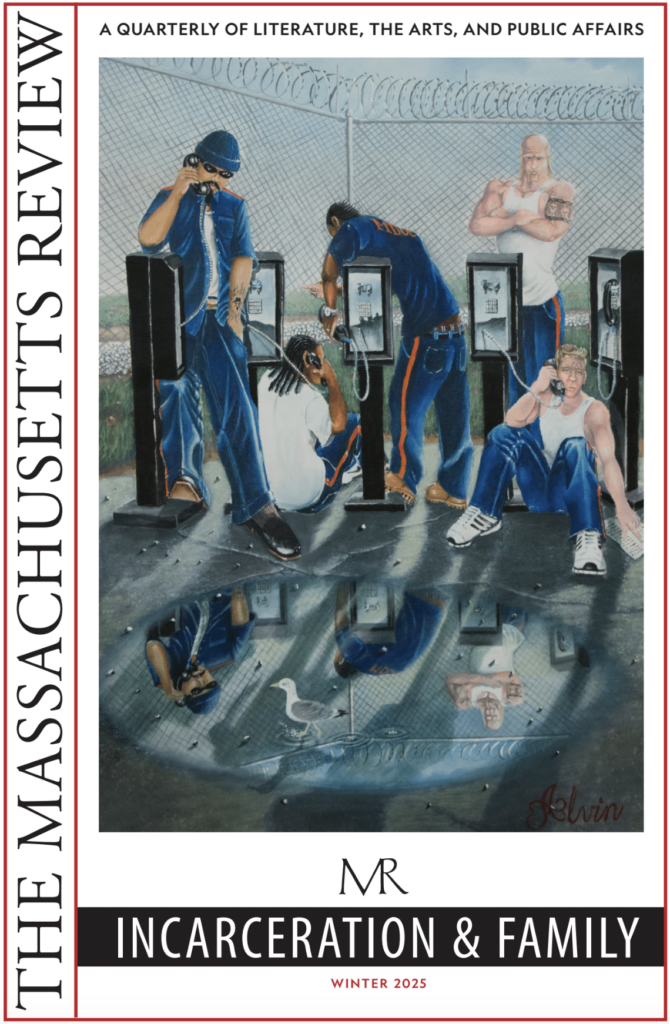10 Questions for Yutong Li
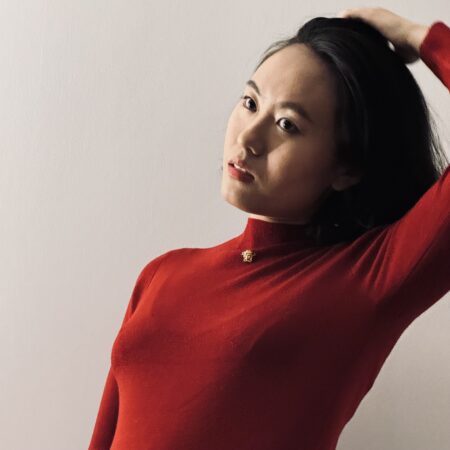
My Dear D, after twelve years of trying, I no longer hope you’ll remember we were once two peanuts nestled in the same shell.
—from “What Peanuts Remember,” Vol 66 Issue 3 (Fall 2025)
Tell us about one of the first pieces you wrote.
My first creative writing piece was this fiction about a love triangle between the Mona Lisa, a cockroach living in the Louvre, and a thief who’s disguised as a security guard. I told the whole story through love letters that the Mona Lisa and the cockroach exchanged, plus these security incident reports.
So the cockroach becomes completely obsessed with her. And one day his passion just overwhelms him. He can’t control himself anymore. He crawls right up onto the painting in front of everyone, trying to either reach her or maybe free her from the frame. The guard, acting on instinct, smacks him dead against the painting, leaving a dark smudge across her face.
The story ends with art scholars debating whether the stain should be removed. Some insist it adds a new kind of beauty—that a Mona Lisa with a mole has the same sensual appeal as a Venus de Milo with broken arms.
What writer(s) or works have influenced the way you write now?
Definitely Roland Barthes and Camera Lucida. That book about his mother cut me open in every possible way. There’s one line where he looks at a childhood photo of her and writes, “I studied the little girl and at last rediscovered my mother.” I still remember trembling when I read that—almost like he had given birth to her through language. For me, that’s what writing feels like: a kind of reverse motherhood, a way of bringing back to life the things that formed you.
What other professions have you worked in?
I’m a classical equipment Pilates instructor. The first time I walked into a Pilates studio, those contraptions honestly looked like torture devices—they scared the hell out of me. The guy who invented Pilates, Joseph Pilates, basically turned his bed into a gym. He was interned during WWI and started using bed springs and whatever he could find to create these exercises for injured inmates. So when you’re lying on the Reformer thinking “this feels like torture,” you’re not wrong. But I became fascinated by this different way of engaging your body. It’s this sustained endurance, this slow-steady-why-does-this-second-feel-like-eternity kind of movement.
What inspired you to write this piece?
Peanuts. Like the title suggests—”What peanuts remember”—it all started with peanuts. I was looking at this pod once, and there were two peanuts nestled together inside, and it struck me how much that relationship resembled me and my brother. We’re twelve years apart, so there’s this asymmetry: one peanut is always bigger, more developed, while the other is smaller, sometimes even a bit misshapen.
But they’re still in the same pod, sharing the same protective shell, the same nutrients. And I started thinking about how siblings can feel so connected yet so separate at the same time. There’s this intimacy of shared space, shared origins, but also this fundamental aloneness. You can’t actually feel what the other peanut feels, even though you’re right there together.
The piece became about memory and forgetting, about family trauma and love. My brother and I have such different memories of our childhood, partly because of our age gap, but also because we processed things differently. I wanted to explore that gap—how one person can carry all these intense memories while the other person has moved on, maybe even forgotten entirely.
Is there a city or place, real or imagined, that influences your writing?
It must be my hometown, Changchun, a city in northeastern China that has always felt surreal to me. In my childhood memories, spring meant apricot and peach petals drifting through the air, sometimes swirling just above the ground. Then summer brought willow fluff, floating in clumps. And winter—of course—snow that could last for months, falling until the world seemed entirely blanketed. In my recollection, this city snows all year round, in different forms of snow: petals in spring, willow fluff in summer, and the real thing in winter. That rhythm has shaped how I think about temporality in literature: time and space feel like recursive, snow-like creatures.
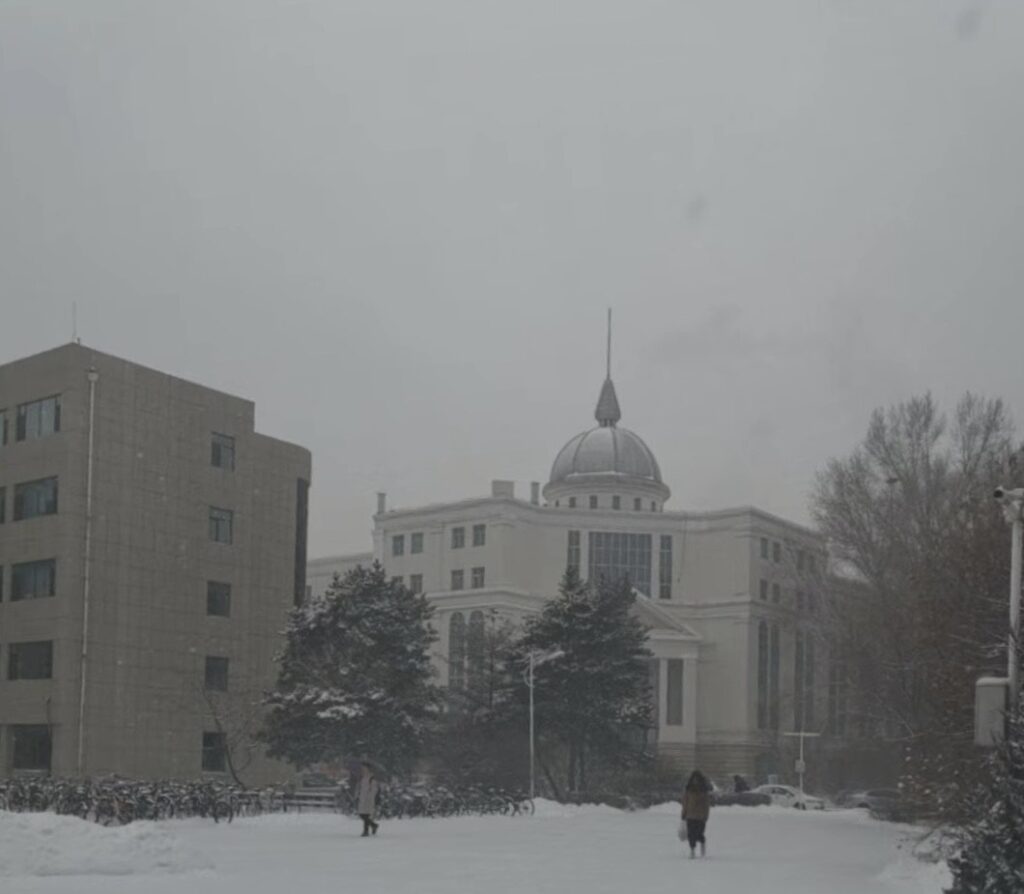
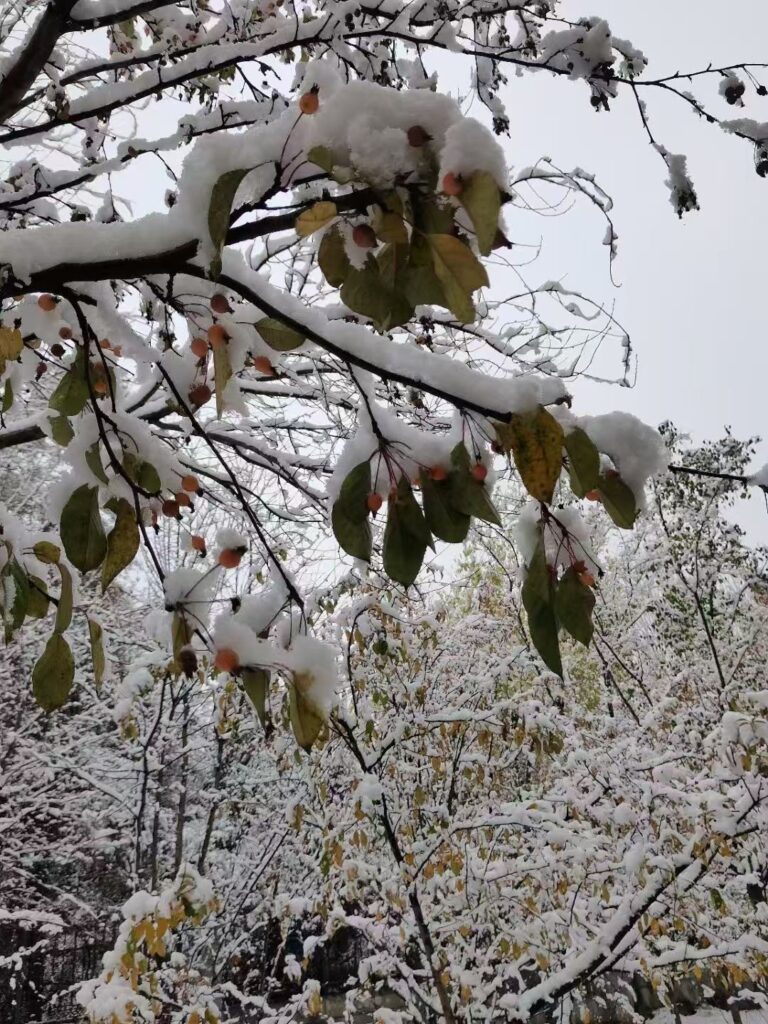
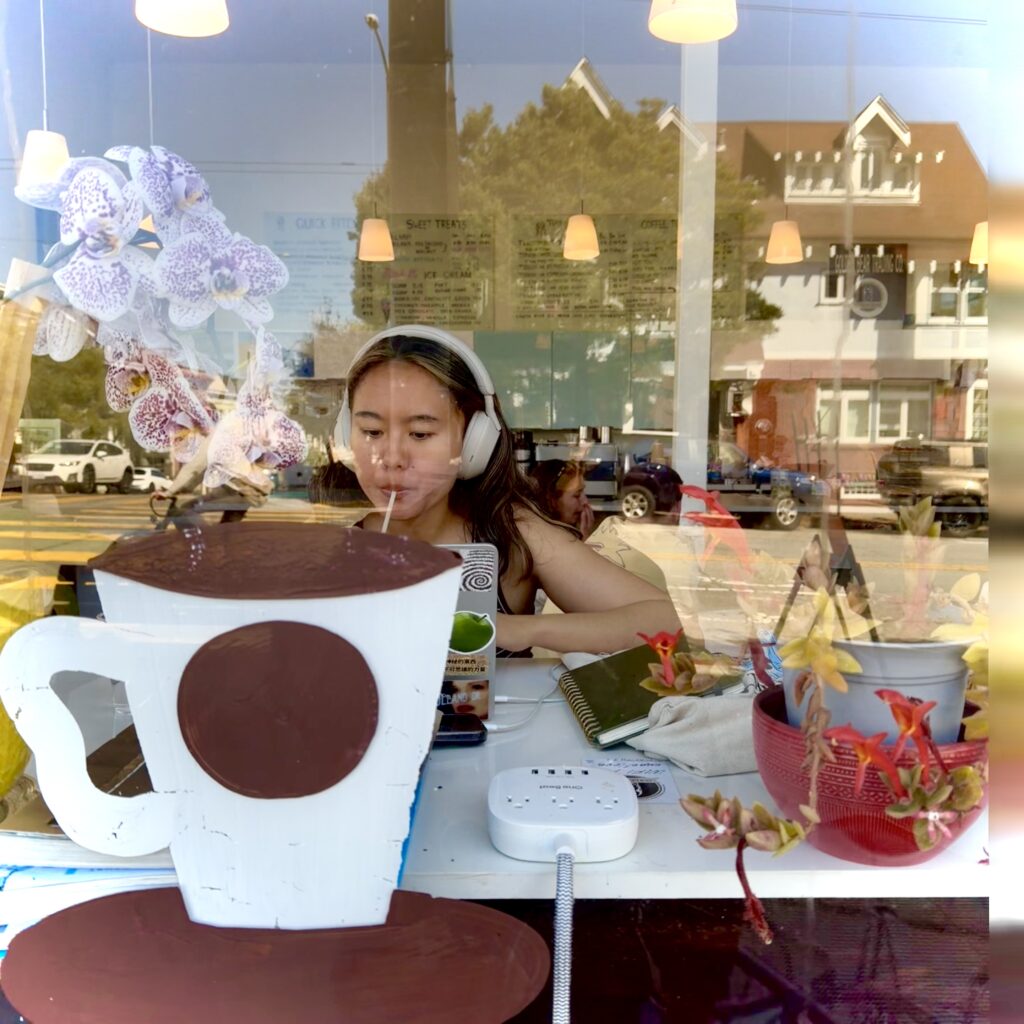
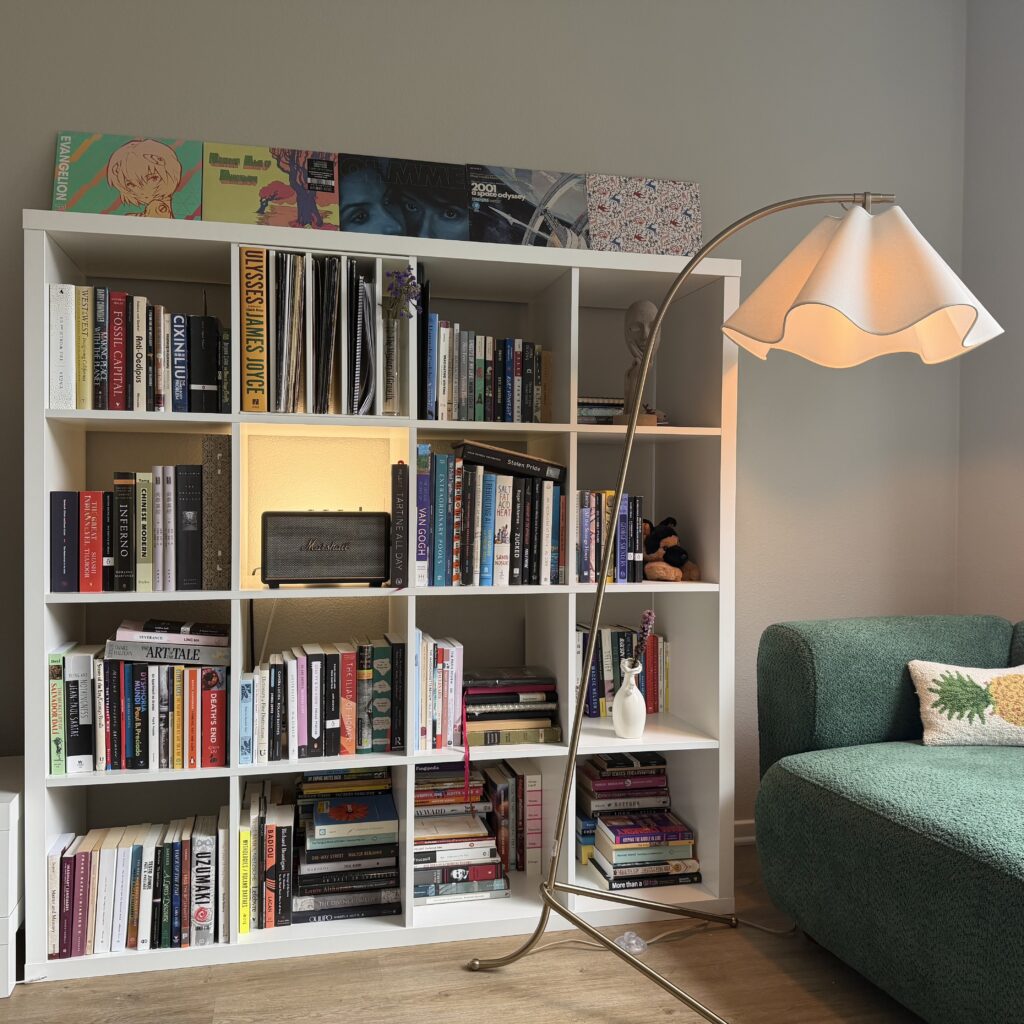
Do you have any rituals or traditions that you do in order to write?
Yes, I do. I can’t be a writer without rituals. My rituals are fruit-related. For a while I was obsessed with green apples. When I write, I place a green apple in front of my computer—preferably the kind with skin that feels waxy when you touch it.
Every time I feel like putting down my pen and crawling back into bed, I touch it, caress it. If the day goes really well, I eat it at the end as a reward. If the day goes terribly, I also eat it. Either way, the apple gets eaten. Lately, I’ve become attached to peaches—only the fuzzy kind. But green apples still occupy a soft spot in my heart . . .
Who typically gets the first read of your work?
My partner. He gives my work this precious patience and attention that I really treasure. Even when I get defensive and emotional about feedback (which happens more often than I’d like to admit), he still manages to give me sincere, honest opinions. I think that balance of being gentle but truthful is really rare. Most people either tell you what you want to hear or they’re brutally honest without any care for how it lands. He somehow does both: he’s honest but he’s also kind about it.
If you could work in another art form what would it be?
I started learning Chinese zither (guzheng) when I was six and played for ten years. I love that instrument, but I hated having to sit perfectly upright for hours. The guzheng bench isn’t like those comfortable, cushioned piano benches. It’s just this hard wooden stool. Sit on it long enough and you’d literally have the wood grain pattern imprinted on your butt. My teacher had this unwritten rule: your butt absolutely cannot take up more than half the bench, and one-third is ideal. The bench is already quite narrow!
Guzheng requires you to maintain this elegance: you can’t thrash around like pianists do when they get really into it. I think that’s what made me give up in the end. In another universe, with a harder butt and stronger willpower, I definitely would have become a guzheng player.
What are you working on currently?
A family memoir collection, a chapter about my grandmother. When I was little, my grandmother taught me how to fold paper ingots out of gold foil—in Chinese culture, these are burned as money for deceased relatives so they’ll have spending money in the underworld.
I used to love sitting next to her by the window, folding these ingots together. Usually we could fill a whole bag in one afternoon. I remember my grandmother praising me for being fast and skillful at it. She said, “When grandma dies, you can fold them for me.”
All these years later, thinking back on that—ouch. I need to write this down.
What are you reading right now?
The Rings of Saturn by W.G. Sebald. I’m obsessed with this strange effect where I constantly find myself zoning out while reading the book, but it also has this magnetic quality that compels me to go back and reread the parts I missed.
YUTONG LI writes nonfiction in her second language. Her work often explores memory, migration, and the ways language shapes experience. She lives in San Francisco and studies in the MFA program at Saint Mary’s College of California. In 2025, she will attend the Tin House Summer Workshop.



